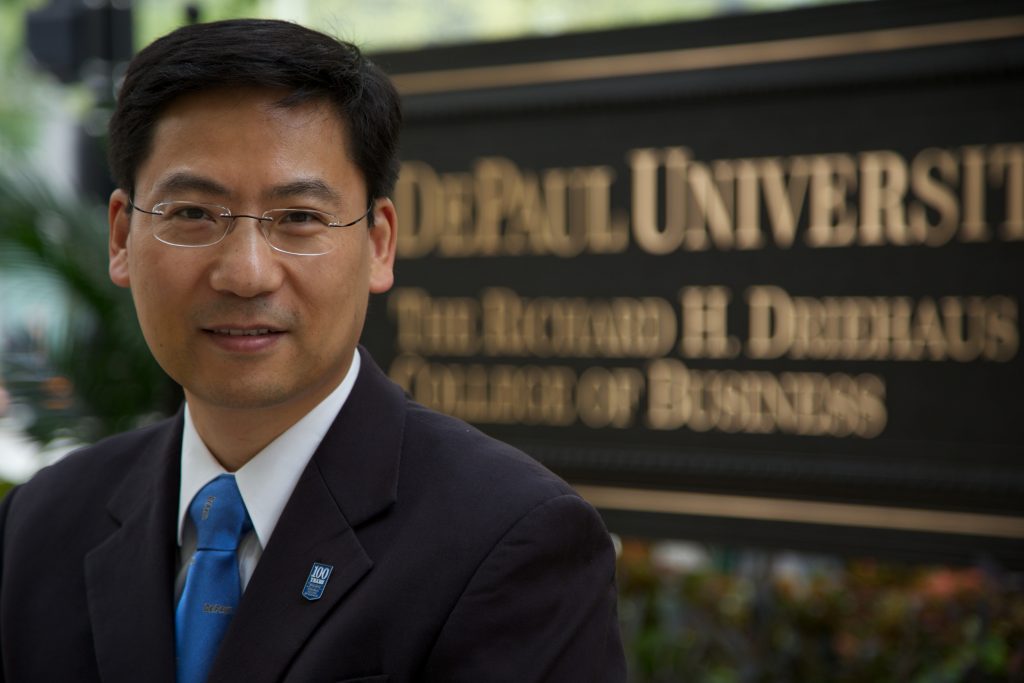
I’m so lucky,” says Bin Jiang, talking about his appointment as the business school’s first Driehaus Fellow this academic year. Certainly that luck runs both ways, as Jiang has contributed excellent research and teaching as a management professor at DePaul since 2004. The five-year fellowship, funded by a portion of Richard H. Driehaus’ $30 million donation to the business school, supports the hiring and retention of extraordinary faculty.
“I was drawn to DePaul by the opportunity to work with our department chair, Scott Young, and other faculty on the business challenges that intrigue me, especially the complexities, both practical and ethical, in managing global supply chains,” Jiang says. “At DePaul, I’m part of a bigger ‘management’ discipline, and that keeps me open to ideas from other areas and colleagues. In many schools, the subsets of management are kept separate, but here we’re an intellectually collaborative group and I really like that.”
In the past 10 years, Jiang has won recognition for his scholarship, including prestigious best-paper awards from the Journal of Operations Management and the Academy of Management. But Jiang’s first love is teaching. “I agree wholeheartedly with DePaul’s philosophy,” he says. “Students are my number one priority.”
In the classroom, Jiang brings a real-world perspective based on 16 years of business experience working in China before coming to the United States. “In operations management, we use a lot of formulas, but a student can’t know what they really mean unless they’re applied practically. I illustrate the principles of supply chain management with case studies based on my own experiences and those of my business friends in China. Because I’m confident in the content, my students connect to the material better.
“Case writing is very time consuming,” Jiang says, “and many schools don’t count it as research. So, teachers are hard-pressed to use cases as a teaching tool. But in law school and medical school, students learn by cases. If I couldn’t provide good cases to my students, I would not be adequately preparing my students for their careers.”
Jiang focuses his work on the role of outsourcing because of the discipline’s central role in modern commerce, he says. “Today’s competition isn’t between companies, but between supply chains. As a result, there’s a lot of risk in these relationships.
“For example, when a company outsources part of its production, is the other company a working horse or a Trojan horse? Will the supplier steal the other’s intellectual property or even its business? This has happened plenty of times,” Jiang cautions. “Given that possibility, management has to ask, Does outsourcing really increase our company’s value? Or is it just a short-term advantage with long-term liabilities? On top of those considerations are ethical ones: Are the working conditions in the foreign company fair and safe?”
Jiang considers the Driehaus Fellowship an affirmation of his work so far and a critical enabler of his work to come. “I plan to use the award to explore an important, but underdeveloped, area—that of post-outsourcing management. I think—I plan—that this research will contribute to the reputation and prestige of the Driehaus College of Business.”
By Margaret Hoag
